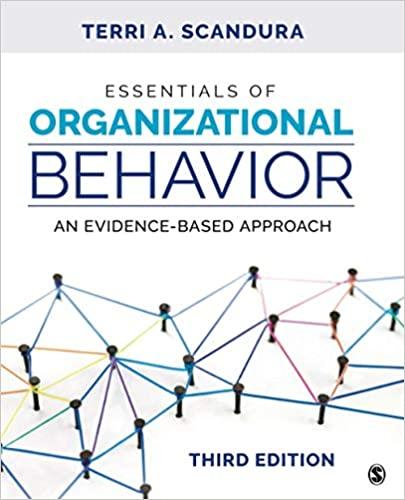Hengchen Dai is a professor at the Anderson School of Management at UCLA. She is interested in
Question:
Hengchen Dai is a professor at the Anderson School of Management at UCLA. She is interested in how a “performance reset” affects motivation. She conducts both field studies and experiments to see how a person’s prior performance record affects their motivation. She has found that lower performers get more motivated and improve when they can start over. However, those with higher performance become demotivated and perform lower. When a prior performance record is erased, people separate their past from their future. Such resets happen in organizations. For example, a salesperson gets to start over fresh each quarter. Dai reports that 40% of respondents in a survey said that they had experienced a performance reset at least once in their career. In one experiment, Dai told the participants playing a game that they would be paid for the total number of correct words they identified over 10 tries. They saw their performance on a graph. After the first five games, half of the respondents were “reset” to a clean graph, wiping out their prior performance. Those who were doing poorly did better in the last five trials, but those who were doing well did worse when their prior performance was erased. Dai explains that this happens because people gain confidence (known as self-efficacy) on a task when they get a chance to start over after failing. But when people are doing well, the reset reduces their confidence and they stop trying. In fact, they may even quit. Dai’s research has shown that followers with high performance expectations may become embarrassed and stop trying, but those with low expectations (i.e., the underdogs) try harder. Leaders often boost their followers’ confidence and motivation by communicating positive expectations However, communicating high expectations may backfire when employees experience setbacks early on.....
Discussion Questions
1. Do you experience a “performance reset” at the start of a new semester? If so, explain how this either motivates you or demotivates you.
2. What are some other reasons why performance resets affect motivation?
3. How can a leader influence follower motivation using performance resets for (1) a poor-performing employee and (2) a high-performing employee?
Step by Step Answer:

Essentials Of Organizational Behavior An Evidence-Based Approach
ISBN: 9781544396781
3rd Edition
Authors: Terri A. Scandura





